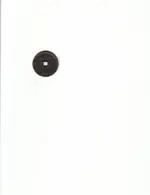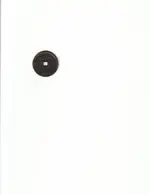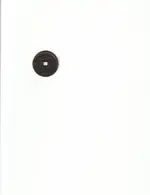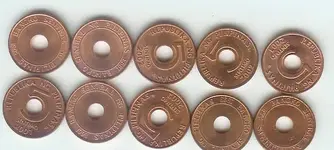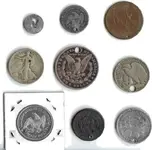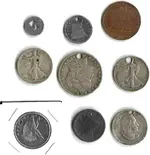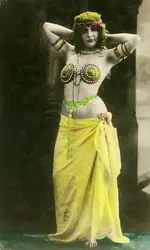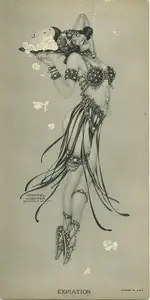You are using an out of date browser. It may not display this or other websites correctly.
You should upgrade or use an alternative browser.
You should upgrade or use an alternative browser.
GunFarce
Hero Member
About 30 years ago I had a Seatle Washington Bus token with a hole in the middle .. Probably the same reason Chinese coins have hole in the middle.. They carry them on a string, or cord.. Beat wearing a hole in your pocket.. Could also be a Canadian $2.00 coin with the gold coloured center gone 

hollowpointred
Gold Member
- Joined
- Mar 12, 2005
- Messages
- 6,871
- Reaction score
- 56
- Golden Thread
- 0
- Detector(s) used
- Minelab Explorer SE/Garrett GTI 2500/ Ace 250
i have seen quite a few holed coins on the site,but to be honest i really dont know why they were drilled. i have heard that some colonial coins were drilled through the kings portrait as a symbol of independance. (kinda thumbing the ol nose at the king). i also heard that people used to wear coins around the neck on a chain to keep from losing them. if thats true i guess it didnt work. i have no idea though if either of these ideas is true .
JakePhelps
Silver Member
- Joined
- Jul 7, 2005
- Messages
- 3,020
- Reaction score
- 16
- Golden Thread
- 0
- Location
- Massachusetts
- Detector(s) used
- Tesoro Cibola
I have dozens and dozens of coins with holes, some square some round and even letter shaped holes. Ill post some if you remind me tomarow 

lou423
Hero Member
- Joined
- Dec 14, 2005
- Messages
- 505
- Reaction score
- 8
- Golden Thread
- 0
- Location
- S.W. Tennessee
- Detector(s) used
- Tesoro. Minelab. Fisher.
Fast_Dave
Full Member
- Joined
- Mar 21, 2003
- Messages
- 215
- Reaction score
- 7
- Golden Thread
- 0
- Location
- Superior, WI
- Detector(s) used
- Minelab Explorer, White's 6000, Fisher Aquanaut
If you mean post minting holes, there are a variety of reasons. One is that people use coins to replace ordinary items. For example, a Penny with two holes in the face may have replaced a coat button. Another reason is that people are trying not to lose the coins. I read a story in one of the hobby magazines a few years ago in which a man purchased a civil war uniform. He found several coins (half dimes I believe) strung on a piece of linen and sewn into the lining. I have a three cent piece I dug about 5 years ago with the nicest hole in it. I'll dig it out and post a pic later.
Klaatu
Sr. Member
Gypsy Heart
Gold Member
Fast_Dave
Full Member
- Joined
- Mar 21, 2003
- Messages
- 215
- Reaction score
- 7
- Golden Thread
- 0
- Location
- Superior, WI
- Detector(s) used
- Minelab Explorer, White's 6000, Fisher Aquanaut
 Why do I suddenly fell that pockets are highlt overrated?
Why do I suddenly fell that pockets are highlt overrated? 
bk
Bronze Member
- Joined
- Jan 19, 2005
- Messages
- 1,423
- Reaction score
- 66
- Golden Thread
- 0
- Location
- SE Minnesota
- Detector(s) used
- Minelab Explorer SE pro, Minelab Explorer XS, Garrett Freedom II (3), Garrett pro-pointer.
- Primary Interest:
- Metal Detecting
Klaatu,
That's got to be the largest collection of holed coins I ever saw.
What year is the Seated Half in the 2X2?......Wait, maybe I don't want to know.
That's got to be the largest collection of holed coins I ever saw.
What year is the Seated Half in the 2X2?......Wait, maybe I don't want to know.
Klaatu
Sr. Member
bk,
That seated half is dated 1855. It is in AU (About Uncirculated) condition. I bought that one at a good price because of the hole. It is part of an 1855 year set I am working on (100 years before I was born).
That seated half is dated 1855. It is in AU (About Uncirculated) condition. I bought that one at a good price because of the hole. It is part of an 1855 year set I am working on (100 years before I was born).
Michigan Badger
Gold Member
- Joined
- Oct 12, 2005
- Messages
- 6,797
- Reaction score
- 149
- Golden Thread
- 0
- Location
- Northern, Michigan
- Detector(s) used
- willow stick
- Primary Interest:
- Other
After gypsyheart's pictures I almost forgot what the topic was!? 
Anyway, I've studied this hole thing from both the ancient and modern perspective.
Here's the info I gathered.
Coins were bored mainly for one of three MAIN reasons:
1) jewelry applications
2) sentimental reasons
3) superstition applications
The jewelry & sentimental applications are rather obvious.
The superstition application is not well known today. I learned it many years ago from a major coin dealer in the U.S.? I purchased 200 U.S. Large cents from him for $1 each. Back in the early 80's he was glad to get rid of them.
I asked him why so many coins from early America are holed. He told me they were "tinkers." The Native Americans bored holes in the "white man's" money and tied the coins about the neck, etc., so they would clack together and make a tinkling sound. This was thought to keep away evil spirits.
I know some will say "no way!."? But, I've researched this over the years and discovered that it is indeed fact. I don't have the documentation anymore but it can be had if one does some checking.
The ancients holed coins partly to show faithfulness to the emperor or whomever. They wore the coins about the neck or they had them connected to body leather straps.
It would take a book to explain it all.
In some ways I prefer holed coins now that I better understand them.

Anyway, I've studied this hole thing from both the ancient and modern perspective.
Here's the info I gathered.
Coins were bored mainly for one of three MAIN reasons:
1) jewelry applications
2) sentimental reasons
3) superstition applications
The jewelry & sentimental applications are rather obvious.
The superstition application is not well known today. I learned it many years ago from a major coin dealer in the U.S.? I purchased 200 U.S. Large cents from him for $1 each. Back in the early 80's he was glad to get rid of them.
I asked him why so many coins from early America are holed. He told me they were "tinkers." The Native Americans bored holes in the "white man's" money and tied the coins about the neck, etc., so they would clack together and make a tinkling sound. This was thought to keep away evil spirits.
I know some will say "no way!."? But, I've researched this over the years and discovered that it is indeed fact. I don't have the documentation anymore but it can be had if one does some checking.
The ancients holed coins partly to show faithfulness to the emperor or whomever. They wore the coins about the neck or they had them connected to body leather straps.
It would take a book to explain it all.
In some ways I prefer holed coins now that I better understand them.
Attachments
JakePhelps
Silver Member
- Joined
- Jul 7, 2005
- Messages
- 3,020
- Reaction score
- 16
- Golden Thread
- 0
- Location
- Massachusetts
- Detector(s) used
- Tesoro Cibola
I have read an article in a coin magazine about how some were holed and tied to stuff for infants teething, the article had a pic of a morgan dollar with a hole and it had small teeth scratches and marks on it.
lordmarcovan
Hero Member
- Joined
- Jan 3, 2006
- Messages
- 553
- Reaction score
- 29
- Golden Thread
- 0
- Location
- Golden Isles Of Georgia
- Detector(s) used
- Many models over the years, mostly Garretts
- Primary Interest:
- All Treasure Hunting
I've dug quite a few. Holing coins was quite common from ancient times until the early 1900's. It's not quite as common today, since coins are worth less in everyday commerce.

I also collect (non-dug) holed coins.

I display them on my "Holey Coin Vest" and "Holey Gold Hat", which I wear to coin shows.

It's gained me a bit of whimsical fame- I've been in Numismatic News and Coin World several times- it seems to get me remembered as a kooky character. In fact, my title on the Collector's Universe Forums is "The Holey Of Holeys".
Here is a recent Coin World article about holed coins. I was one of the folks interviewed for it: http://www.coinworld.com/news/041805/BW_0418.asp Some of the reasons people holed coins are discussed.

I also collect (non-dug) holed coins.

I display them on my "Holey Coin Vest" and "Holey Gold Hat", which I wear to coin shows.
It's gained me a bit of whimsical fame- I've been in Numismatic News and Coin World several times- it seems to get me remembered as a kooky character. In fact, my title on the Collector's Universe Forums is "The Holey Of Holeys".
Here is a recent Coin World article about holed coins. I was one of the folks interviewed for it: http://www.coinworld.com/news/041805/BW_0418.asp Some of the reasons people holed coins are discussed.
JakePhelps
Silver Member
- Joined
- Jul 7, 2005
- Messages
- 3,020
- Reaction score
- 16
- Golden Thread
- 0
- Location
- Massachusetts
- Detector(s) used
- Tesoro Cibola
Nice collection! Thats a neat idea about the hat and vest too  I tried to buy a holed cartwheel like that off ebay once but then i decided not too, ebays not too good for coins
I tried to buy a holed cartwheel like that off ebay once but then i decided not too, ebays not too good for coins 
 I tried to buy a holed cartwheel like that off ebay once but then i decided not too, ebays not too good for coins
I tried to buy a holed cartwheel like that off ebay once but then i decided not too, ebays not too good for coins 
Born2Dtect
Bronze Member
- Joined
- Jun 11, 2004
- Messages
- 1,683
- Reaction score
- 68
- Golden Thread
- 0
- Location
- Hurlock, Maryland
- Detector(s) used
- XP Deus, Excalibur II
- Primary Interest:
- All Treasure Hunting
Coins that were made with hole are meant to go on a string or piece of leather. One,s that have hole put in them are for one of two reasons that I know. 1. They were put there to serve as a way of connecting to a necklace or bracelet or 2. They were made so they could be sewed to the in side of a coat or vest and would be handy and not lost. When needed the owner simply popped them of to pay.
C
CornDog
Guest
- #20
Thread Owner
Hi,
I'm new to the forum, and I love reading all of the posts. About 25 years ago my Grandmother gave me ten half dimes. All of them had holes punched in them. She told me that they were tied on string or twine and used by her father as a teething ring. She went on to say that this was common practice during that time period.
CornDog
I'm new to the forum, and I love reading all of the posts. About 25 years ago my Grandmother gave me ten half dimes. All of them had holes punched in them. She told me that they were tied on string or twine and used by her father as a teething ring. She went on to say that this was common practice during that time period.
CornDog
Similar threads
- Replies
- 11
- Views
- 1K
- Replies
- 202
- Views
- 6K
Users who are viewing this thread
Total: 1 (members: 0, guests: 1)
Latest Discussions
-
-
-
$1000 Buried on the Prairies near Cheyenne 1910
- Latest: Prairie Gazingfox
-
-
-



